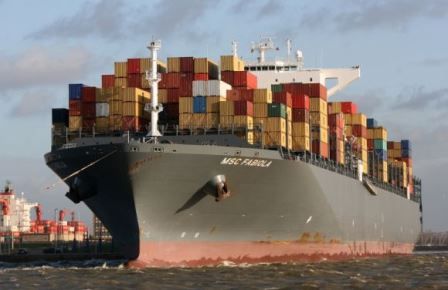
South Africa a week away from a food, petrol and deeper load shedding crisis: report
The ongoing strike at state-owned rail, port and pipeline company Transnet has effectively shut down South Africa’s ports – with the country only a week away from having the backlogs affect the availability of items on store shelves.
Transnet has suffered heavy losses from a strike over wages, with billions of rands being lost every day.
Strike action by both the South African Transport and Allied Workers Union (Satawu) and the United National Transport Union (Untu) has shut down critical import and export infrastructure.
Over 40,000 employees have downed tools. Transnet has tabled an across-the-board increase of between 4.5%. The unions have, however, rejected the revised offer by the employer, noting that something better aligned with consumer inflation at 7.6% would be preferable.
The Commission for Conciliation, Mediation & Arbitration (CCMA) has urged the striking unions to make a compromise with the employer to ensure that the economy is not crippled by the strike action. However, in a statement over the weekend, Satawu said that labour would not back down until three conditions are met:
- A wage increase at or above inflation is granted;
- A no-retrenchment clause is negotiated;
- Increases are back-paid – either once-off or in two instalments.
Speaking to BusinessLive, Jacob van Rensburg, research head of the South African Association of Freight Forwarders (SAAFF), said that if the strike continues for another week, groceries at popular retailers like Woolworths, Pick n Pay and Checkers will start to “diminish rapidly”.
He said that if the strike continues for a week more, then motorists will also start having problems – at petrol stations.
Further warnings have come from the petroleum sector, with Eskom telling BusinessLive that its reliance on diesel will ultimately be affected if the ongoing strike leads to disruptions of fuel imports.
SAAFF CEO Juanita Maree said that the strike is holding up R8 billion in exports a day, adding that the crisis is six times worse than the ongoing energy crisis.
“We have a very open economy – we as businesses are very worried. If you shut down our ports, you’re actually throttling the entire economy,” she said. “(If the strikes continue) we’re going to go down a point where we think it will not be possible to return.”
Maree noted that many of the ships making use of the ports are foreign-owned and come at various schedules.
“If they arrive and can not be serviced due to productivity issues – they don’t announce it in the media, because they don’t want to be blamed (for delays); they just change their schedules,” she said.
“We as South Africans – you and me as end consumers – bear the brunt because now we won’t get the imports and can’t do exports. It’s a devastating situation.”
Maree said that the crisis affects everyone, and those in the agriculture sector – now entering planting season – are unable to get their hands on fertilizer. Urgent medical equipment that needs to get to hospitals are also stuck – it’s the entire downstream of the economy that has been hit, she said.
“Nobody can calculate (the damage),” she said.
Business Leadership South Africa (BLSA) CEO Busi Mavuso said that the strike action, like the illegal Eskom strike action before it, makes it questionable whether labour can be trusted as a social partner to promote the interests of the country.
“Its actions show it is quite willing to hold the economy to ransom while it demands clearly unaffordable and unrealistic wage increases,” said Mavuso. “Given the inertia in reforming the wider transport and rail systems, I also question whether government itself fully appreciates how urgent the situation is.”
The logistics sector needs to be fundamentally altered to allow private sector involvement in infrastructure assets, maintenance and movement of goods. BLSA believes this will strengthen Transnet’s revenue streams and sustainability, not weaken them.
Unfortunately, repeated offers from organised businesses to assist in accelerating this and various other reforms to put Transnet on a sounder operational and financial footing have been rebuffed.
Similarly, the government seems incapable or unwilling to act against the incidents of wanton sabotage to rail lines, including cable theft, that is clearly conducted by organised criminal syndicates, said Mavuso.
News Category
- International retailers
- On the move
- Awards and achievements
- Legislation
- Wine and liquor
- Africa
- Going green
- Supplier news
- Research tools
- Retailer trading results
- Supply chain
- Innovation and technology
- Economic factors
- Crime and security
- Store Openings
- Marketing and Promotions
- Social Responsibility
- Brand Press Office
Related Articles

Empowering South African households through gro...

SPAR shares practical tips to beat food inflation

South African motorists could be paying up to R...

Big VAT changes on the cards


